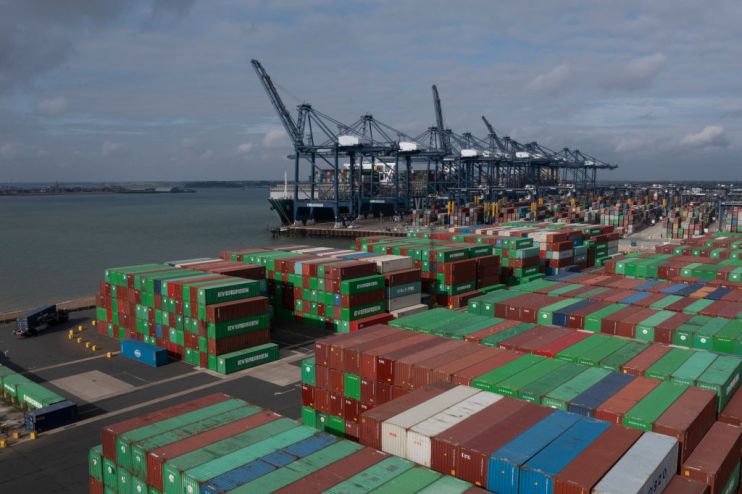Fresh wave of strikes at Felixstowe as workers walk out at end of month

A fresh wave of strikes is set to hit the port of Felixstowe later this month, with workers walking out from 27 September to 5 October.
This will take place following the official mourning period for the Queen’s death.
The union Unite announced today 82 per cent of staff voted in favour of rejecting the port’s offer – which amounted to 7 per cent plus a lump sum of £500 backdated to 1 January 2022.
According to Unite the offer would represent “a sizeable pay cut” if compared with the current retail price index of 12.3 per cent.
However, it is understood the port’s offer would amount to between 8.1 and 9.6 per cent.
This is the second strike to take place at Felixstowe, the UK’s largest container port, in a month as Unite members walked out between 21 and 29 August over salaries, City A.M. reported.
“The latest strike action is entirely of Felixstowe’s own making. Rather than seeking to negotiate a deal to resolve the dispute, the company instead tried to impose a pay deal,” said Unite’s national officer for docks Bobby Morton on Tuesday.
“Further strike action will inevitably lead to delays and disruption to the UK’s supply chain but this is entirely of the company’s own making.”
The port said it was “very disappointed” by the union’s decision while shipping titan Maersk said it was working on contingency plans.
“The collective bargaining process has been exhausted and there is no prospect of agreement being reached with the union,” Felixstowe said in a statement.
Felixstowe’s remarks were echoed by trade body UK Major Ports Group, who said the fresh strikes will mean “more contingency arrangements and costs” as they “come on top of soaring energy prices.”
“We anticipate similar impacts on businesses but limited impacts on end consumers in this wave of action,” said chief executive Tim Morris.
Philip Ashton, chief executive of supply chain optimisation platform 7bridges, told City A.M. following the impact of the last two years on supply chains, the onus of ensuring smoother operations has shifted onto businesses.
“The onus has been placed on UK businesses to invest in a more agile approach to their logistics and ensure goods still get to consumers on time,” he said.
“Those that have learnt from the many months of supply chain disruption will go unscathed from the Felixstowe shutdown. Others may not fare so well.”